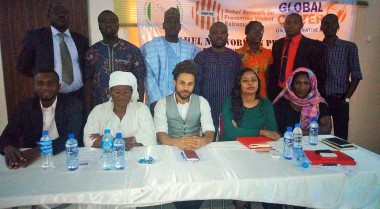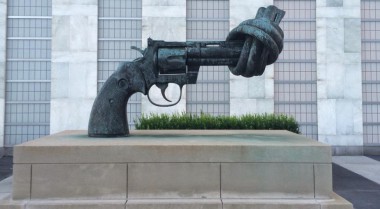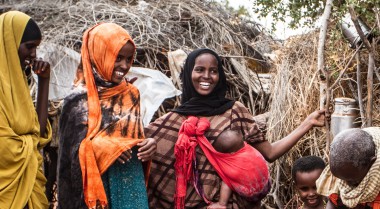
Looking Back with Pride, Moving Forward with Confidence - Reflections on role of civil society in the New Deal
Membership of the Civil Society Platform for Peacebuilding and Statebuilding (CSPPS) has expanded over the past few months as a result of inclusion of new Northern Non-Governmental Organizations (UNOY, RIKO, SFCG etc.). Next to that were changes in CSPPS Country Team (CT) coordination arrangements in some of the g7+ countries: Guinea Conakry, Guinea Bissau and The Democratic Republic of Congo (DRC). In the case of the DRC, it was the result of the departure, on March 15, of Georges Tshionza Mata (GTM) from his role as CSPPS Focal Point in DRC, as Member of the Executive Committee of the CSPPS and as Regional Coordinator of Programme de Renforcement des Capacités de la Société Civile dans la Prévention et la Gestion des Conflits en Afrique Centrale (PREGESCO) . Georges has accepted the position of Expert in Public Finance within the Comité d'Orientation de la Reforme des Finances Publiques (COREF), a World Bank-financed project in the DRC. In this role, he will oversee the inclusion of civil society in monitoring public budgeting. His journey within the CSPPS was remarkable to the extent that his departure was prodigious for many in the CSPPS family. Georges was among the civil society members involved in earlier stages of processes that led to the signature of the New Deal for Engagement in Fragile States. Considered to be a cornerstone of the institutional memory of the CSPPS, Georges wasinterviewed by Ms. Mireille Kabasubabo, CSPPS Policy and Communications Officer, to whom he disclosed specifics relating to engagement with CSPPS and the New Deal for Engagement in Fragile States. The interview further touched upon his career, pride, challenges and opportunities facing civil society in fragile and conflict-affected contexts.
From the Democratic Republic of Congo to Busan
Questioned on how he has seen the role of civil society and that of the CSPPS evolving from Busan, with the civil society becoming more and more organized, Georges alluded that he was involved in the Busan process at national, regional and international level. From Busan and even earlier, there were a series of meetings – he recalled three important moments:
i. Preparatory meetings for the 3rd High-Level Forum on Aid Effectiveness in Accra: Prior to the Accra Forum DRC civil society organised preparatory meetings at national, regional and international level. Georges stresses that Congolese civil society held an in-country (national) discussion prior to the Forum. During the national discussion, there was a consensus that civil society should prepare not only for the Forum on Aid Effectiveness, but also think of how it could be organised around policy dialogue. Thus, civil society embarked on a lobby and advocacy towards Technical and Financial Partners before 2007 to solicit their support in facilitating involvement of civil society in pollical dialogue. In this regard, Georges developed a structure covering the period from 2007 to 2009 – i.e. beyond the Accra Forum. A while before that, Georges reveals GTM on on-board of a speedboat on the Kivu Lake, DR Congo Blog: Looking Back with Pride, Moving Forward with Confidence 2 that he had designed a technical note relating to involvement of civil society in political dialogue; a note that incited a former DRC Minister of Planning to contact him for a discussion on how the Ministry of Planning and Partners could support civil society in the DR Congo.
By Georges Tshionza Mata and Mireille Kabasubabo.



